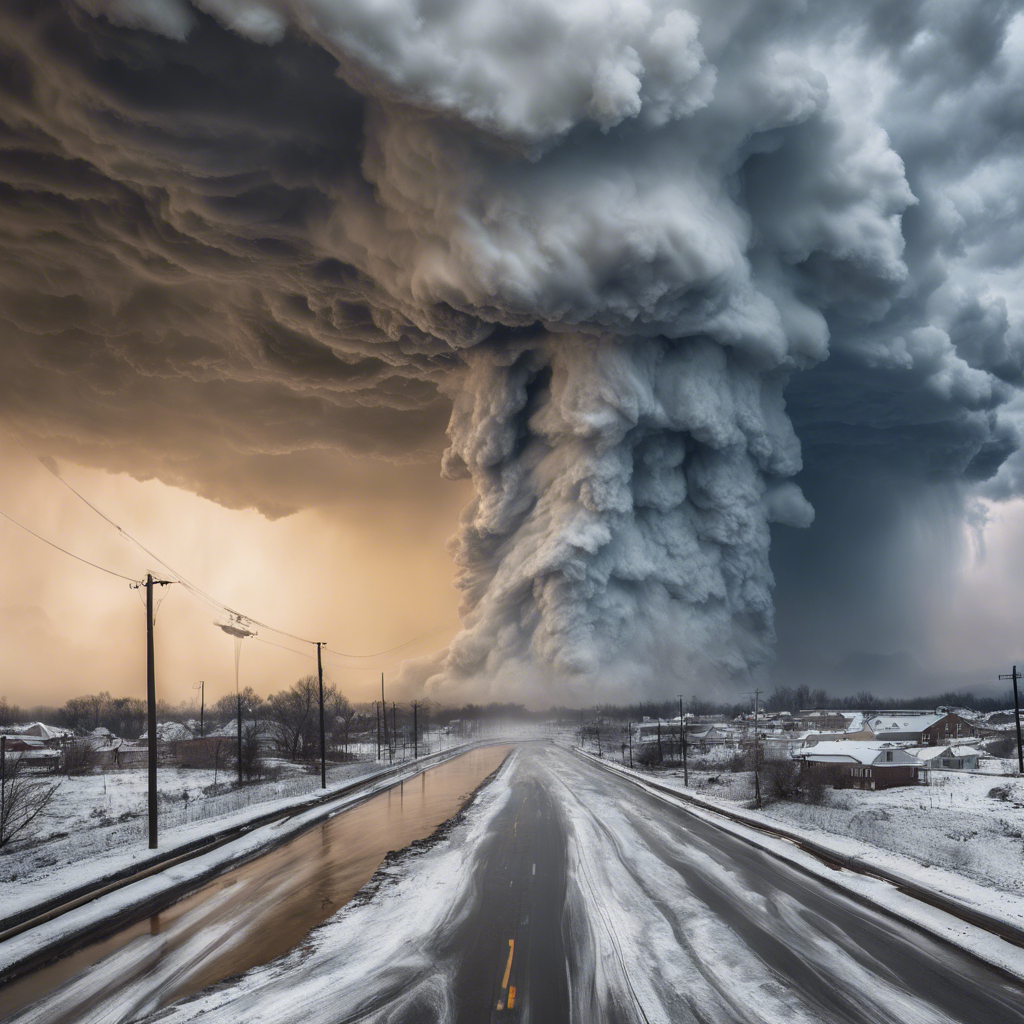Extreme Weather Ravages the United States: From Flooding to Freezing Temperatures

Record high tides and flooding hit the Northeast, while the Midwest and Great Lakes region are pummeled by heavy snowstorms. The country braces for dangerously low temperatures and wind chills.
As winter storms continue to wreak havoc across the United States, the country is facing a range of extreme weather conditions. From record high tides and flooding in the Northeast to heavy snowfall in the Midwest and Great Lakes region, millions of Americans are grappling with the effects of these severe weather events. Additionally, dangerously low temperatures and wind chills are predicted to persist in various parts of the country, posing significant risks to vulnerable populations. This article explores the impact of these extreme weather events and examines how different regions are coping with the challenges they present.
Flooding and High Tides in the Northeast:
Record-breaking high tides and heavy rainfall cause flooding in Maine and New Hampshire.
In the coastal Northeast, residents are dealing with the aftermath of record-breaking high tides and heavy rainfall. In Portland, Maine, a gauge recorded a 14.57-foot difference between high and average low tide, surpassing the previous record set in 1978. Photos from Hampton, New Hampshire, show rushing water on roads, with residents expressing astonishment at the unprecedented flooding. The combination of heavy rain and storm surge amplified the impact of the tides, leading to significant property damage and disruption.
Frigid Conditions in Kansas City:
Kansas City experiences one of the coldest NFL games in history.
Kansas City Chiefs fans and players braved frigid temperatures as they celebrated a playoff victory over the Miami Dolphins. With temperatures plummeting to minus 8 degrees and wind chills reaching minus 25, the game ranked as the fourth-coldest in NFL history. Despite the bone-chilling cold, it fell short of breaking the record set during the iconic 1967 Ice Bowl between the Green Bay Packers and the Dallas Cowboys. While the Chiefs’ win brought joy to fans, the freezing conditions served as a reminder of the intensity of winter weather in the region.
Winter Weather Warnings and Advisories:
Millions of Americans are under winter weather advisories and warnings.
As the winter storms continue to sweep across the country, millions of Americans are under winter weather advisories and warnings. The National Weather Service reports that 45 million people are affected by winter weather advisories, while more than 30 million are under wind chill warnings. Additionally, a winter storm warning is in effect for 18 million people. These alerts highlight the potential dangers posed by freezing temperatures, heavy snowfall, and strong winds, urging residents to take necessary precautions.
Great Lakes Region Battles Heavy Snowfall:
Cities along the Great Lakes face relentless snowstorms and whiteout conditions.
Cities along the Great Lakes and in the surrounding region are grappling with relentless snowstorms and whiteout conditions. The National Weather Service warns that an additional 1 to 2 feet of snow is expected to accumulate in some areas, with western and southern New York State and parts of Michigan being particularly affected. Chicago has already seen significant snowfall, and Milwaukee and Buffalo are bracing for more. The heavy snowfall has led to dangerous road conditions and prompted authorities to issue travel advisories.
Conclusion:
In the face of extreme weather events, communities across the United States are demonstrating resilience and resourcefulness. From the Northeastern states dealing with record high tides and flooding to the Midwest and Great Lakes region battling heavy snowfall, Americans are adapting to the challenges posed by these severe weather conditions. As the country continues to grapple with freezing temperatures and wind chills, it is crucial for individuals and communities to prioritize safety and take necessary precautions to protect themselves and vulnerable populations. By staying informed, prepared, and supporting one another, Americans can weather these storms and emerge stronger together.

